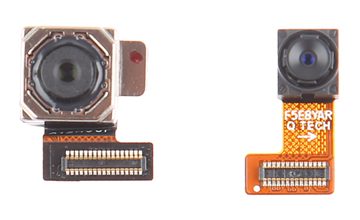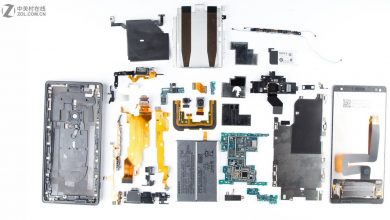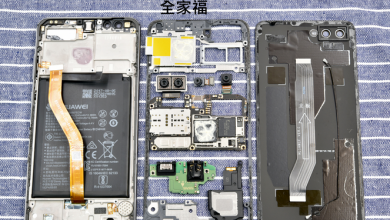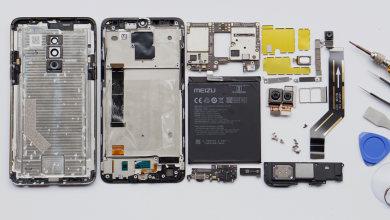Xiaomi held an annual flagship conference to officially launch the Xiaomi Mi 8 on May 31, 2018. The 6.21-inch flagship features a rear fingerprint sensor and supports IR face unlock. By the way, its Explorer Edition comes with the world’s first pressure-sensitive in-screen fingerprint sensor, which supports 3D structured-light face unlock. Today, we will show the teardown process of the Xiaomi Mi 8, and you will see the internal structure of this flagship.
The phone features a fringe screen. This fringe looks wider and bigger than the fringe other smartphones adopt. It comes with a curved-edge glass body. From that, it can be inferred that no glue or screw is used to fix the back cover. There is no screw found at the bottom of the phone. I heat up the edges of the smartphone with a heater. Then, use a plastic chip to separate the back cover from the phone body. Now, the back cover can be removed. After removing the back cover, its internal structure can be seen.
The fingerprint reader module is connected to the motherboard via a cable. The cable ports are easily removable as they are neither held in place by metal tabs nor screws. After the back cover was removed, a lot of heat dissipation film, metal sheet, and copper sheet can be seen. After I took it out from the phone’s body, the back cover remained intact and without any scraps. Even the glue is used to fix the back cover of the phone body. After I take out screws, the motherboard and vice board can be removed. Now, we can see the three-stage internal design more clearly.
The NFC chip is integrated into the cover plate of the motherboard. The part with black lines is the NFC chip. Now, we can see that the loudspeaker is fixed on the cover for the vice board. Removing three small screws used to fix the motherboard and the vice board, and then the motherboard and the vice board can be taken out. After taking out the motherboard, we can have a direct view of the camera design. The yellow component is the heat-dissipation copper sheet.
It is not easy to remove the main camera. Firstly, remove the glass cover plate for the main camera in a violent way (for there is no choice). Once it is removed, the cover plate can be applied to the main camera again, for it is stuck to the main camera with glue.
The main camera is now removed, although the teardown process is not easy. The secondary camera is fixed on the metal shield of the motherboard via a copper sheet. Tearing down a camera means that the heat dissipation structure will be destroyed. Below the fringe is the camera for selfies, proximity sensor, infrared camera, earphone, and infrared LED. The teardown process on the infrared camera is quite easy. Disconnect the cable, and then it can be removed, which causes no damage to the structure.
There is the front camera, the selfie camera, and the infrared camera. Twenty screws in two types have been removed from the smartphone. It sports a 3400mAh battery made by SCUD. The phone uses a long-line vibration motor.
Metal contacts of the earphone and the infrared LED can be seen. The type-C port with charging, earphone, and data functions is integrated into the vice board. The back of the vice board is stuck to the phone body with double-sided tape. Now, I have finished the teardown on the Xiaomi Mi 8.








Hello
Where are the GPS chip and the GPS antenna?
Thanks
Cecile
Because its metal shield is soldered directly to the motherboard, we have no way to access the chip.
Can you show us where the GNSS chip is located approximately on a motherboard image please?